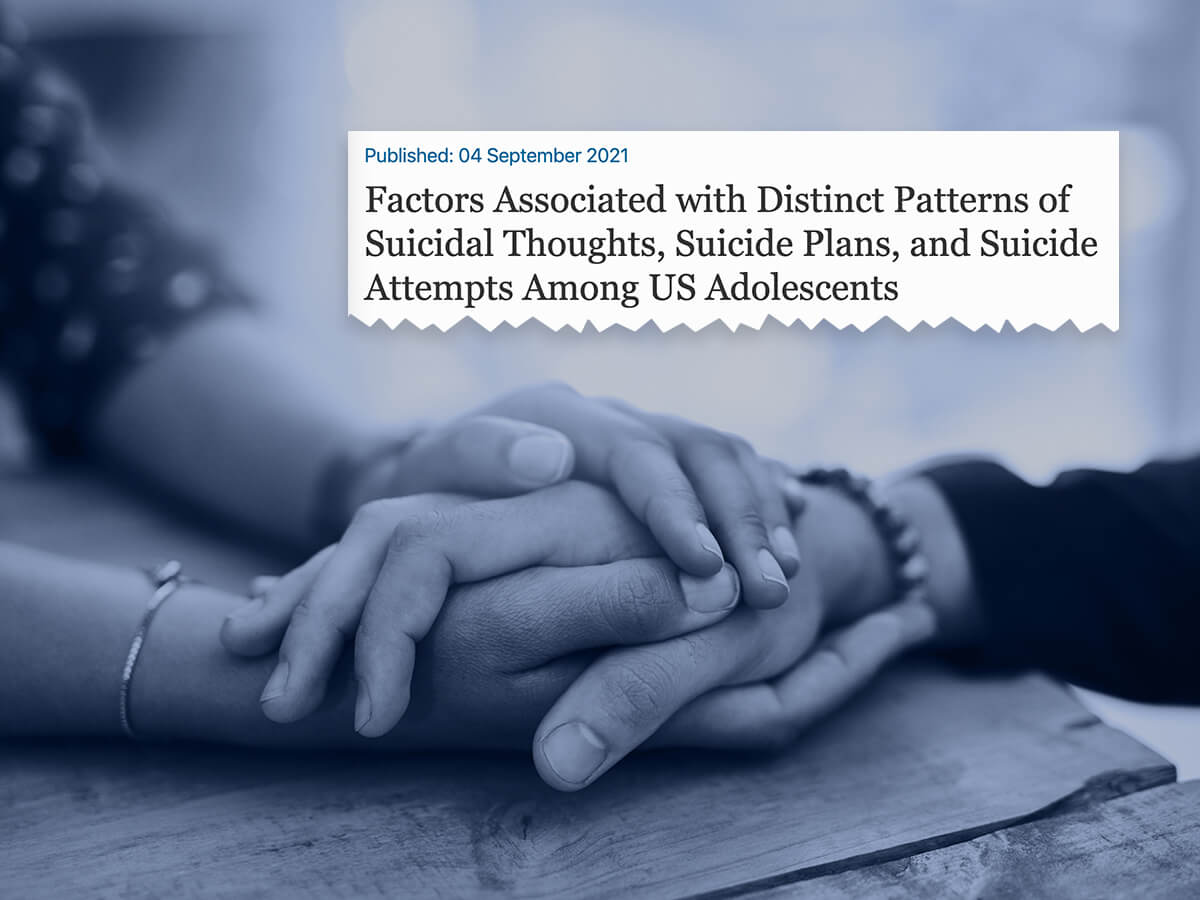Content Warning: Topics include suicide, sexual violence and drug misuse.
Also, online bullying, misusing prescription opiates, and experiencing sexual violence increase likelihood teens will not only think about suicide, but also attempt it.
FOR IMMEDIATE RELEASE
Contact: Kim Eckart, keckart@uw.edu or Sheryl Huggins Salomon, mcsilver.comms@nyu.edu
(September 14, 2021) — Black high school students are almost two times as likely as White students to attempt suicide without reporting any thoughts or plans beforehand, according to a new study in Prevention Science published online this month. “Current suicide screenings often mark suicidal thoughts and plans as primary indicators that a person might be at risk for an attempt. Yet, as we discuss in the study, Black youth’s symptoms may be more likely to manifest as concerns in their relationships with others, physical complaints, or behavioral problems,” said lead author Meghan Romanelli, an Assistant Professor in the School of Social Work at the University of Washington and a Faculty Affiliate of the NYU McSilver Institute for Poverty Policy and Research. “Since suicide screening tools generally don’t consider these factors, it’s important that we start to think about these potentially different warning signs or expressions of suicidality among Black youth aside from thoughts and plans.”
“What we’re seeing is that Black youth are more likely to evidence an attempt, seemingly without telling anyone about their thoughts and plans beforehand,” says Dr. Michael A. Lindsey, a study co-author who is Executive Director of the McSilver Institute. “This supports our prior research at McSilver showing that self-reported suicide attempts are on the rise among Black youth even as self-reported thoughts and plans have been decreasing.”
The study included data from nearly 7,500 high school students who completed the 2015, 2017, and 2019 National Youth Risk Behavior Surveys and who reported having suicidal thoughts, a suicide plan, and/or a suicide attempt within the past 12 months.
The researchers also found that students across racial and ethnic groups who reported being bullied online, sad or hopeless, had a history of sexual violence, used cigarettes, and misused prescription opiates were more likely to report suicide attempts with thoughts and plans, as opposed to having only thoughts and plans without an attempt.
The other co-authors of the study included Dr. Arielle Sheftall, a principal investigator in the Center for Suicide Prevention and Research at the Abigail Wexner Research Institute at Nationwide Children’s Hospital in Columbus, Ohio; Sireen B. Irsheid, a Doctoral Student at University of Chicago Crown Family School of Social Work, Policy, and Practice; and Tracy M. Grogan, a Research Assistant at the NYU McSilver Institute.
About the McSilver Institute
The NYU McSilver Institute for Poverty Policy and Research is committed to creating new knowledge about the root causes of poverty, developing evidence-based interventions to address its consequences, and rapidly translating research findings into action through policy and best practices. Learn more at mcsilver.nyu.edu and sign up for updates.
About the School of Social Work at the University of Washington
The University of Washington School of Social Work advances social, racial and economic justice through rigorous research and innovative solutions developed and tested in collaboration with communities. Consistently ranked among the top three graduate schools of social work in the country, it prepares students to lead and innovate in areas ranging from Indigenous and LGBTQ health to substance abuse prevention, palliative care social work, suicide prevention and child welfare. Learn more at socialwork.uw.edu.

